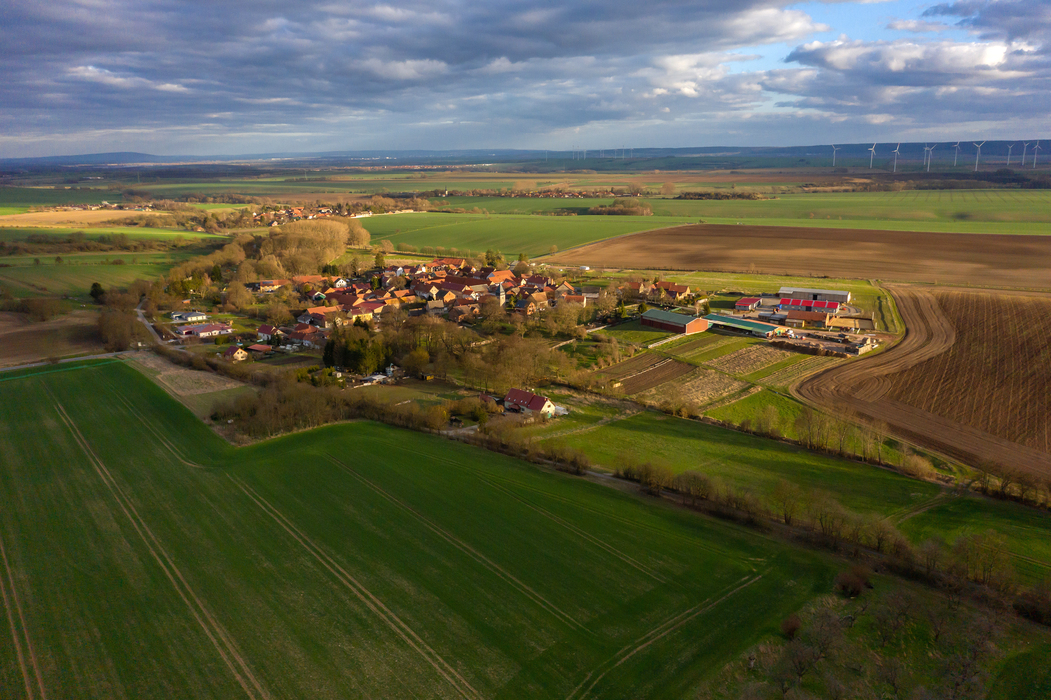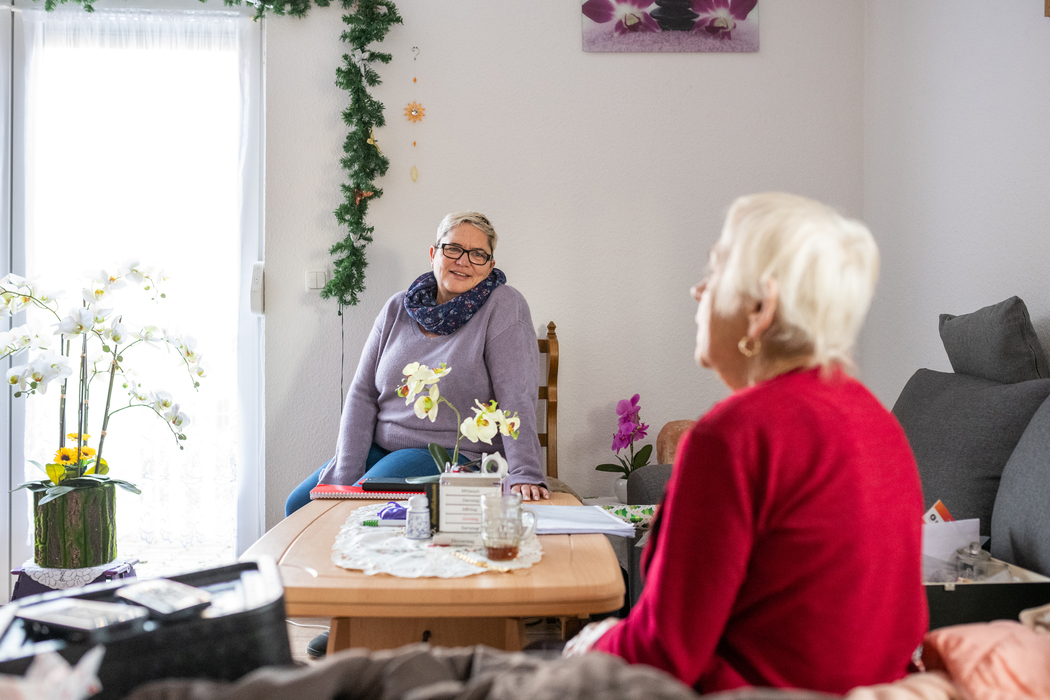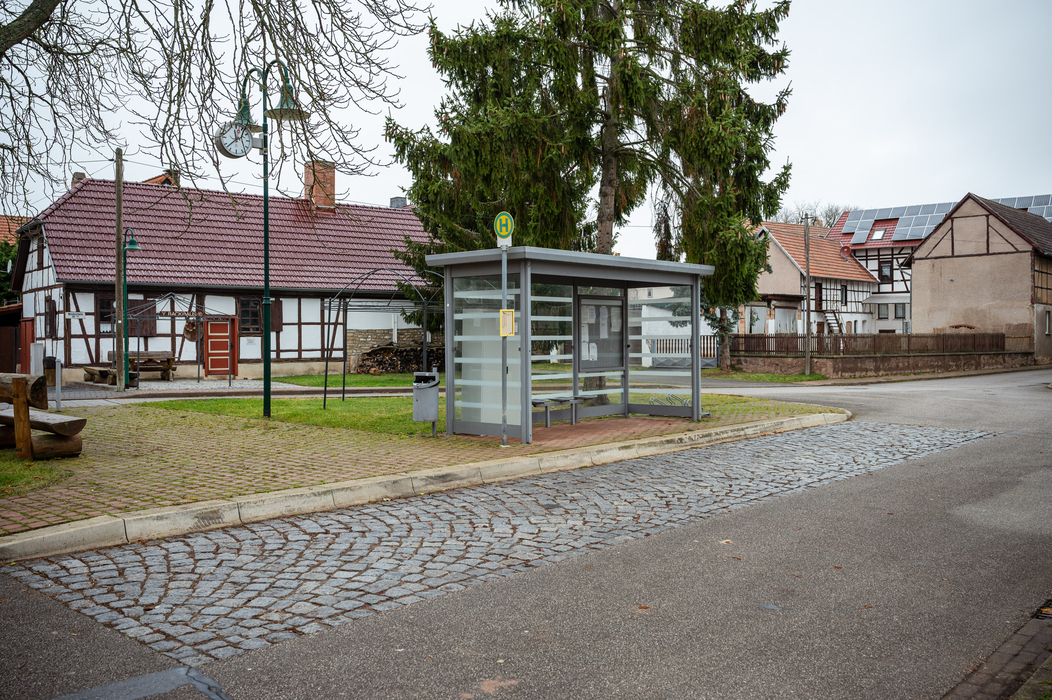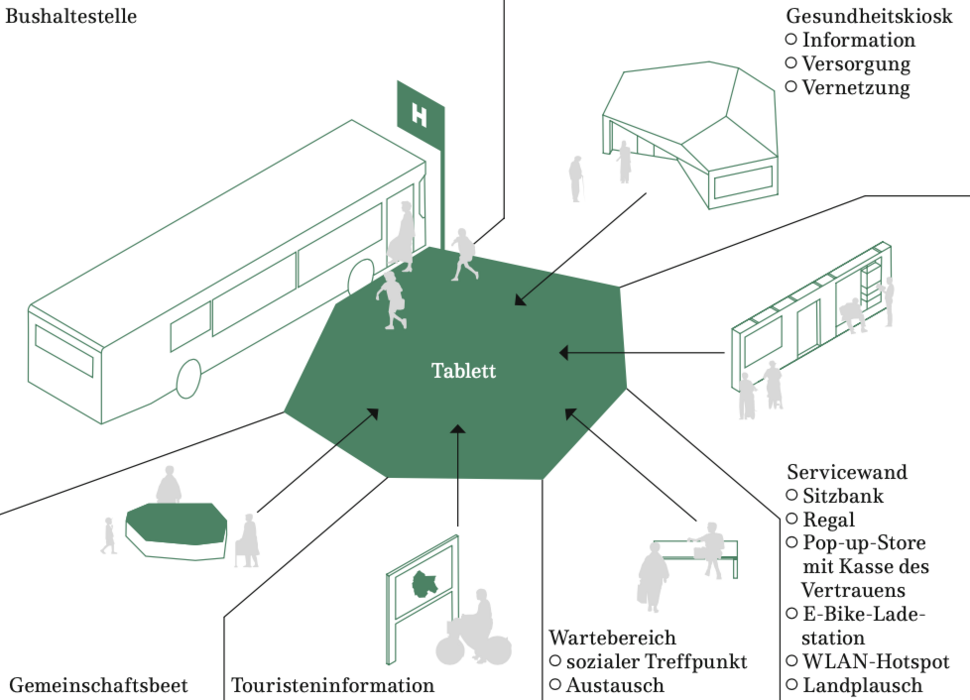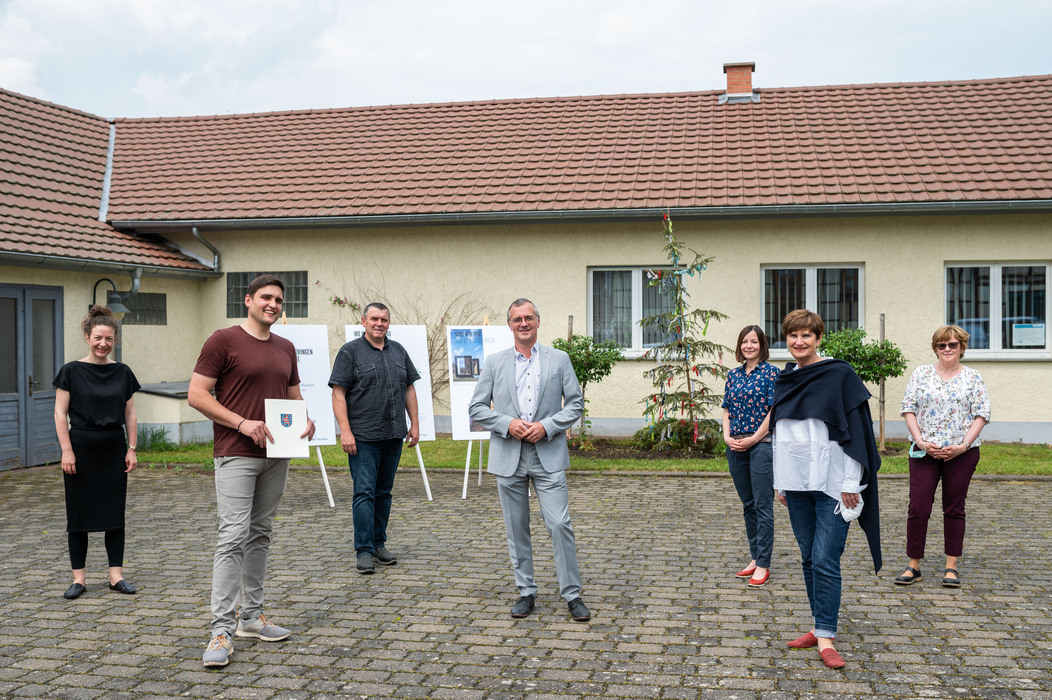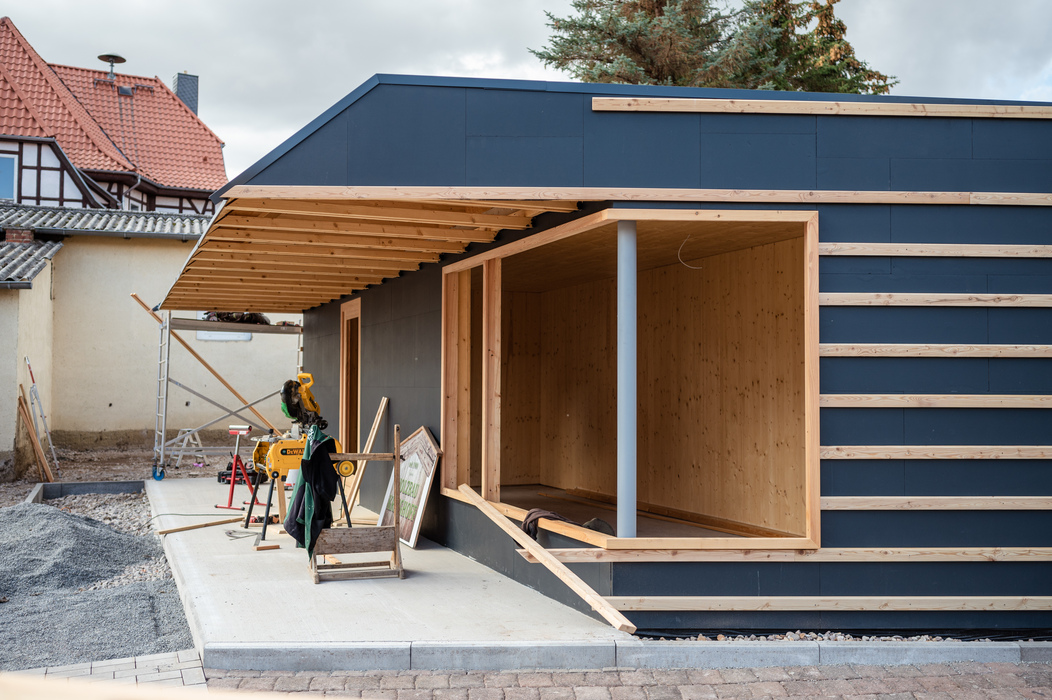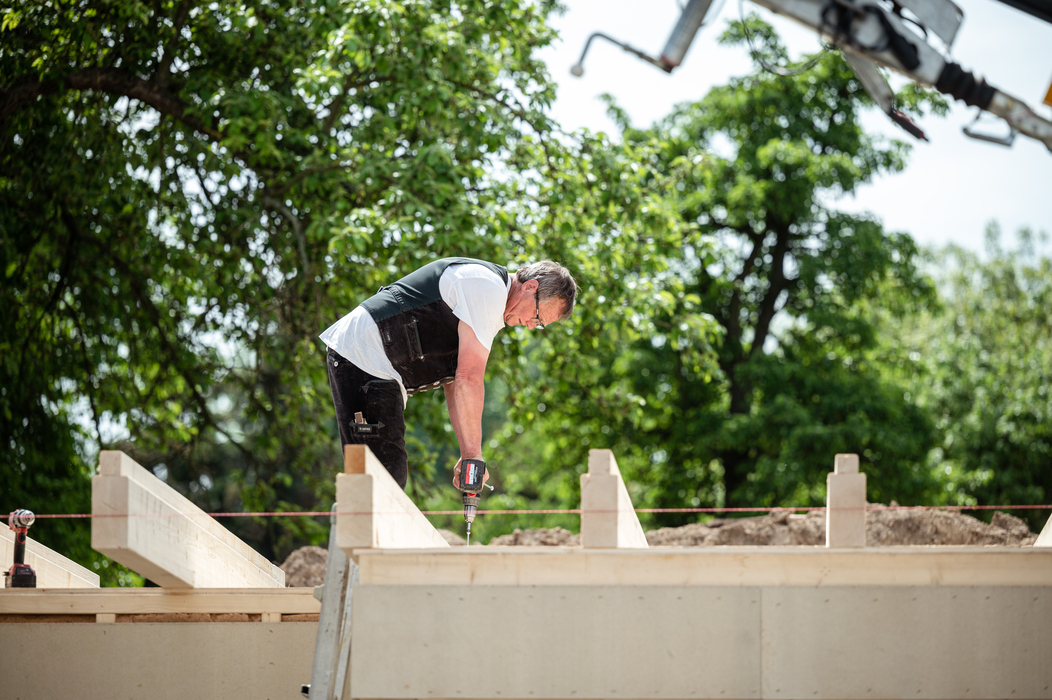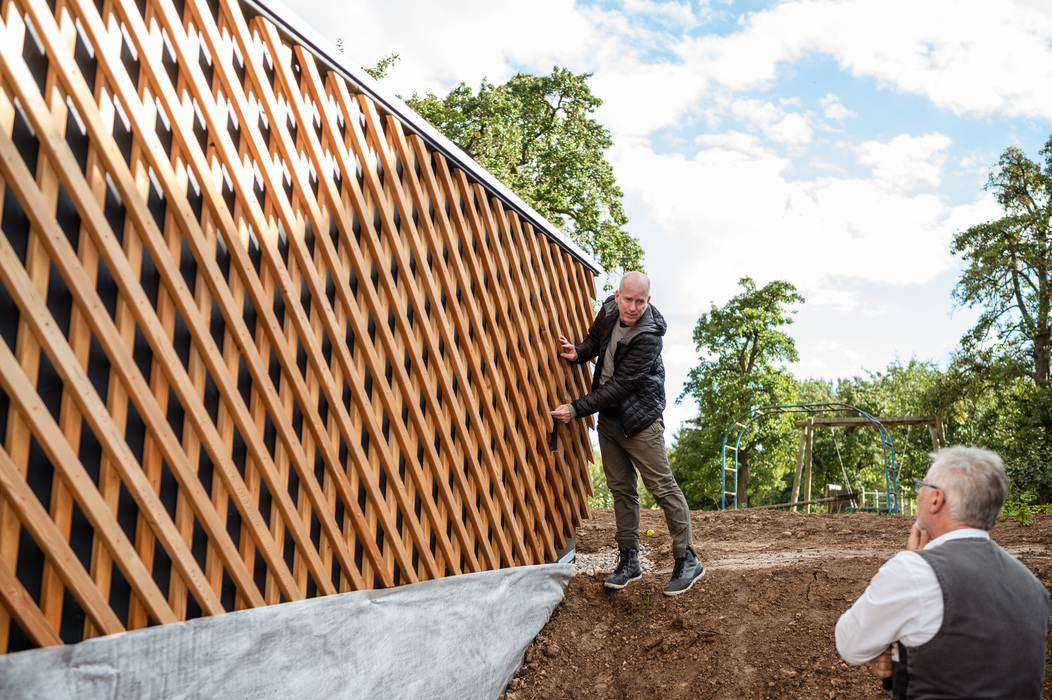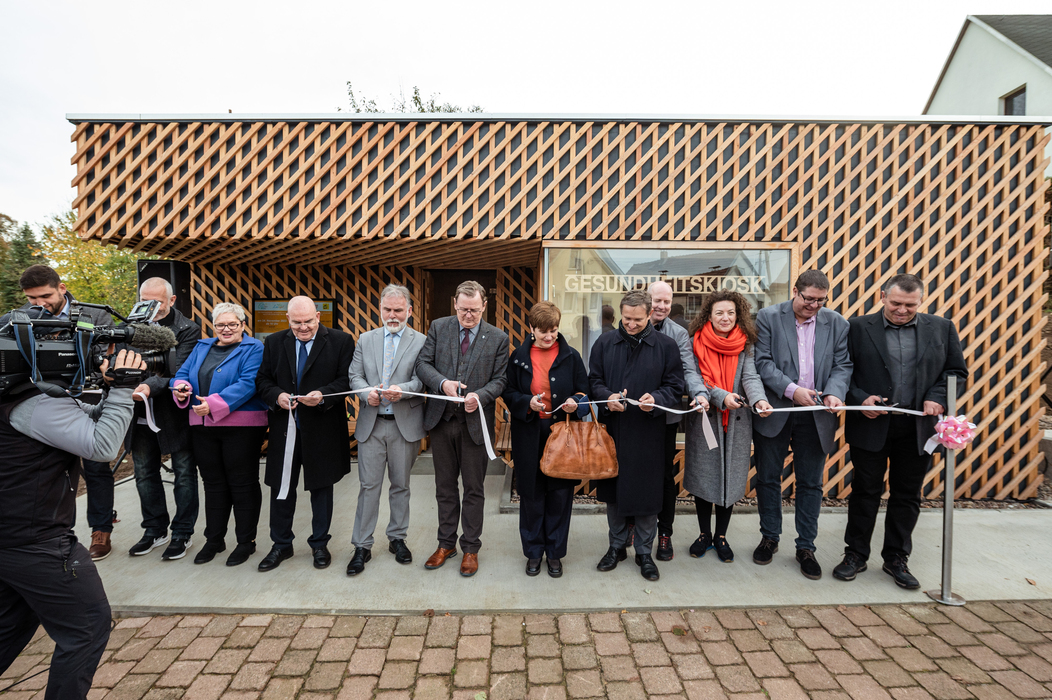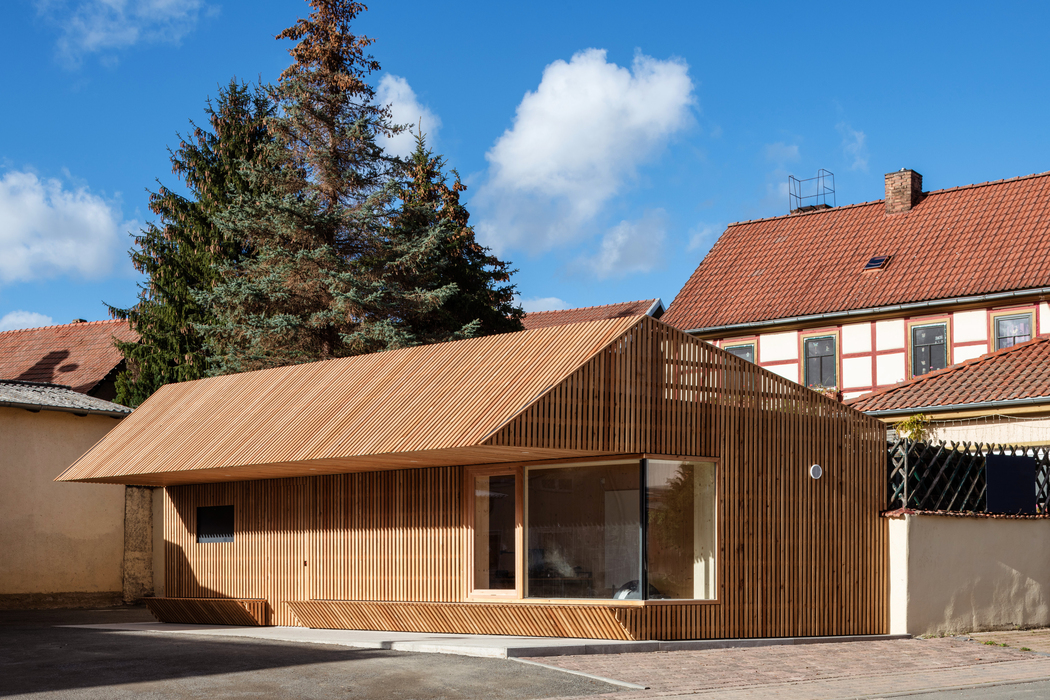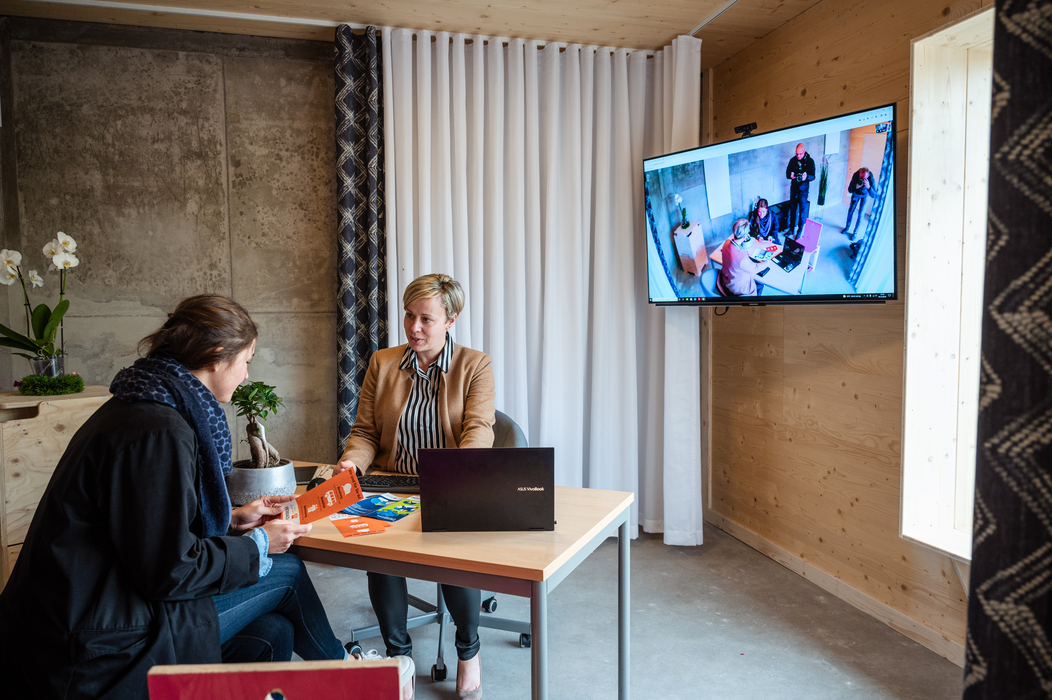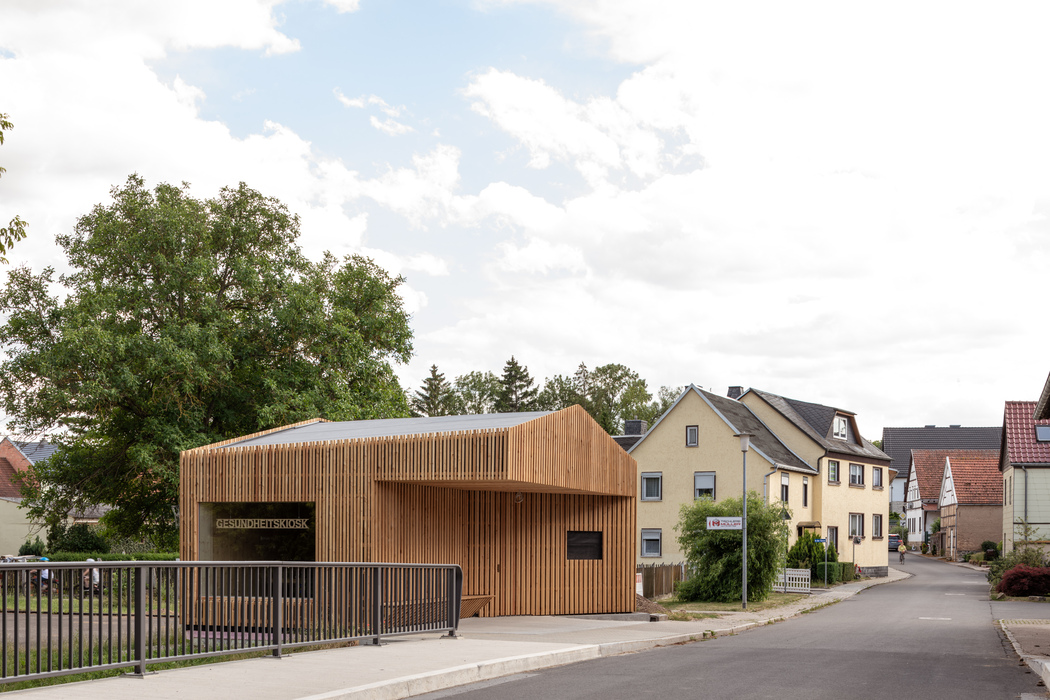Health Kiosks
⸺ Cooperative healthcare in rural areas
Rural areas have gained attention and significance in public and political discourse. This is not solely due to spatial disparities such as a lack of medical practices, limited public transportation options, and long distances, but also owing to committed individuals and groups who generate innovative ideas. They organize themselves within associations, foundations, or cooperatives, contributing their own capital and efforts to shape the quality of life for themselves and others. They create something that our society urgently needs: an optimistic outlook on the shared future. This rings true for the Seltenrain region within the agriculturally shaped Thuringian Basin.
In a cross-municipality collaboration, a joint healthcare, nursing, and service network is emerging in Blankenburg, Bruchstedt, Kirchheilingen, Sundhausen, Tottleben, and Urleben. This addresses a core issue in rural areas: how to ensure service security while organizing social cohesion. As part of the IBA Thuringia project, four health kiosks are being constructed using contemporary timber construction. They are strategically located in central areas, always near the bus stops. The concept aims not only to provide healthcare services but also to prevent social isolation and unite care for the elderly, assistance, and welfare services in rural regions. All of this is being achieved through cooperative efforts of the municipalities, supported by the Landleben Foundation and its association, Landengel e. V. The stakeholders are ardently striving to establish these new organizational forms within the regional network, facing considerable challenges in institutional, organizational, and financial structures. Stemming from a cross-municipality development concept, the Landleben Foundation was initially established in 2011 through the commitment of the local agricultural cooperative and the municipalities. Their agenda includes reopening schools, sustaining the public swimming pool, offering transportation services, and creating housing options for older residents—all of which are already being successfully implemented. Notably, the Landleben Foundation and its chairman, Frank Baumgarten, have received multiple awards for this commitment. In 2017, the foundation established Landengel e. V., led by Christopher Kaufmann, focusing on cross-municipality care and health services. The project doesn't just center on village residents as patients but also as citizens with needs for advice, exchange, and meeting points. Currently, the project has 21 partners, and the association boasts 305 members. The care is supported through the state of Thuringia's preventive program, AGATHE. Since January 2019, the first contact person (a community nurse in a broader sense) has been working with and for the people in the region, and as of 2022, there are already four in operation. They conduct regular consultations in the villages and develop solutions for health prevention, mobility, housing, and care issues, while also aiding with bureaucratic obstacles. This initiative is gradually establishing citizen-oriented healthcare services, advising around 600 individuals quarterly. As a complementary measure, a club-owned bus has been integrated to provide transportation services, especially for doctor and therapy appointments.
To give this new social infrastructure a spatial and design identity, the stakeholders, in collaboration with IBA Thuringia, embarked on a joint venture. The idea emerged for health kiosks, designed as small, versatile, and quickly heated spaces in addition to their function as bus stops. This allows residents from other municipalities to participate in the preventive services. Commissioned by IBA Thuringia, PASEL-K Architects from Berlin developed a design manual in 2019. It conceptualizes these kiosks, no larger than 25 square meters each, as an architectural family that, despite different locations, form a cohesive whole. They serve as consultation rooms and also as adaptable waiting areas for buses, incorporating a toilet. Executed as high-quality timber structures with renewable electricity and heating (infrared heating), the construction is tailored to each location and municipality. This simultaneously showcases and communicates new approaches to Thuringian timber construction cultures. The municipalities provide the plots of land for the bus stops via leasehold agreements. To illustrate exemplary variants of timber construction, experiments were conducted on roof and wall structures as well as facade constructions. These health kiosks, as untreated timber constructions, are climate-neutral regarding their planned solar energy supply. Connected charging stations for e-bikes and electric cars aim to enhance the region's mobility options. These experimental buildings, insulated with wood wool or blown-in cellulose, are particularly sustainable from a social standpoint. This is because they involve various local stakeholders in numerous collaborative formats throughout the process—from open building offices to involving local artisans and joint construction efforts. The experimental nature of the project thus serves the development of prototype buildings on one hand and the cultivation of new partnerships on the other.
The first kiosk was inaugurated in November 2022 in Urleben, followed shortly by Kirchheilingen. By spring 2023, all four kiosks will be completed. What's more, starting in 2023, a telemedicine service will be available - connecting patients with specialist doctors, supervised by AGATHE, using a cooperatively organized and freely accessible internet connection. Here, it's the data that travel, not the people. The four health kiosks are just the beginning. More are set to follow. The future operator of this new healthcare concept is the "Gesundes Landleben GmbH," established in October 2022 by the Landleben Foundation and OptiMedis AG. It will not only manage the health kiosks but also supplement this innovative network of decentralized hubs for healthcare consultations and services with a central "mothership," the Landzentrum in Sundhausen, a former village shop being renovated as part of the IBA.
Orte
Gesundheitskiosk Blankenburg
Wendeschleife 99955
Gesundheitskiosk Bruchstedt
Bahnhofstraße 99955
Gesundheitskiosk Kirchheilingen
Ernst-Thälmann-Platz 99947
Gesundheitskiosk Urleben
Straße der Einheit 99955
Cooperation partner
- municipalities Blankenburg, Bruchstedt, Kirchheilingen, Sundhausen, Tottleben and Urleben
- Agrargenossenschaft e. G. Kirchheilingen
- Gesundes Landleben GmbH
- OptiMedis AG
- Partners of the Landengel e. V.
Financial support
- Thuringian State Office for Agriculture and Rural Areas: Promotion of integrated rural development and revitalization of brownfield sites, facilities for local basic services
- Internationale Bauausstellung Thüringen GmbH
- Architecture: PASEL-K Architects, Berlin
- Interview with Christopher Kaufmann, IBA Magazin 2022
- Project presentation November 2022
- Interview with Frank Baumgarten (Stiftung Landleben) and Christopher Kaufmann (Landengel e.V.) im IBA Magazin 8
- Article ›Kooperative Vorsorge auf dem Land‹ von Kerstin Faber in Der Entwurf (2021)
- Article ›Gemeinsam Machen - Kooperative Vorsorge auf dem Land‹ im IBA Magazin 2020
- ›Engagiert fürs Dorf‹, Interview mit Frank Baumgarten im IBA Magazin 2019
- Design Manual for the Health Kiosks, Pasel-K Architects, Stand 2019
- IBA Logbuch, Stand 2019
